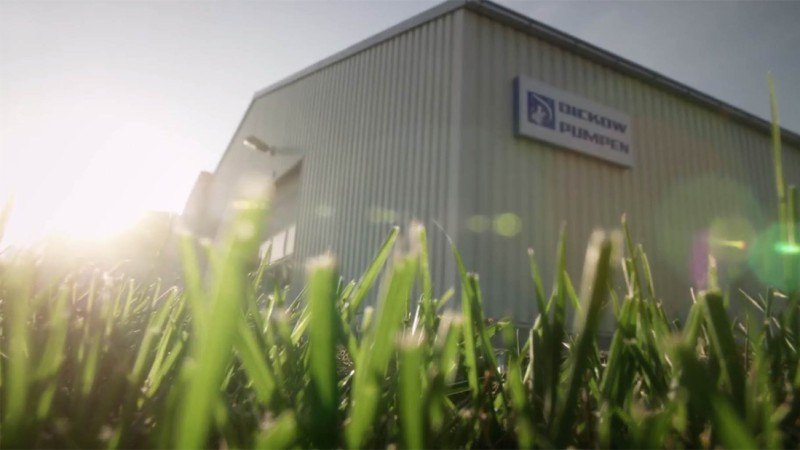
News
Waldkraiburg, March 10, 2023
As of today, the mechanical engineering company Dickow Pumpen has already generated more than 200,000 kWh via its in-house photovoltaic system, thus avoiding CO² emissions of more than 140 tons. As an innovative technology company, Dickow has made it its goal to be an active driver of the energy turnaround with clean energy sources and to ensure a future worth living for the younger generations. And: the sun does not send a bill!
We are on the right track
In 2020, Dickow Pumpen built a photovoltaic system on a new company building under the leadership of Managing Director Jörg Bornemann and Operations Manager Wilhelm Schimm. The energy generated in this way covers the power consumption of the machinery on a pro-rata and relieves the public power supply. In this way, Dickow is sustainably reducing production costs despite increasing production and is actively contributing to environmental protection. Managing Director Jörg Bornemann explains, "We are on the right track in equipping the company for the tasks of the future and have come to another tor step closer to our sustainability and environmental performance guidelines."
Excellent sustainability policy at DICKOW
Last year, the innovative pump manufacturer from Waldkraiburg in Bavaria was once again awarded the "silver" seal by EcoVadis for its environmental and sustainability policy. In addition to generating clean energy, the company also was pressed with its measures for dealing with hazardous substances and recycling waste. The next step planned for this year is certification to the ISO 14001 environmental standard. By 2026, the area of the photovoltaic plant is to be increased six-fold as part of the internal sustainability project.
Photovoltaics have a very good life cycle assessment
A good ecological balance can be achieved with photovoltaic systems. Especially with the domestic electricity mix, the production is sustainable, no scarce or critical raw materials are needed for the production. CO² emissions during operation are negligible and the raw materials used can be recycled up to 90 %.



